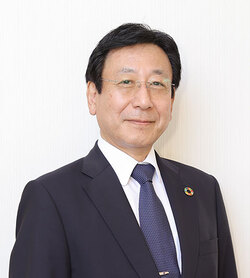
Toshikazu YASUI
President,JIHEE
With the objectives of supporting Japanese universities and junior colleges in the autonomous improvement and reform of their quality, and contributing to the development of higher education in Japan through certified evaluation and accreditation, the Japan Institution for Higher Education Evaluation (JIHEE) is a certified evaluation and accreditation agency established in 2004.
JIHEE had 345 member institutions as of June 1, 2024. Since the majority of our members are private universities and junior colleges JIHEE places an emphasis on the individuality of each university, and while attempting to communicate with the universities works on their evaluation and accreditation based on a peer review ethos so as to contribute to reforms and improvements that will help them each achieve their various missions.
Since the year 2004 all of Japan’s universities, junior colleges and colleges of technology have been required by Article 109 of the School Education Act and other stipulation to undergo individual evaluations every seven years by a certified evaluation and accreditation agency. In 2005 JIHEE received certification pursuant to this law as such an agency from the Minister of Education, Culture, Sports, Science and Technology.
The evaluation standards for the third term of JIHEE’s work consists of: 1. Mission and Objectives, etc., 2. Students, 3. Educational Curriculum, 4. Faculty and Staff, 5. Management, Administration and Finance, and 6. Internal Quality Assurance. JIHEE conducts its evaluations based on the premise that each university’s internal quality assurance initiatives are the basis for their post-establishment quality assurance.
JIHEE is affiliated among others to the International Network for Quality Assurance Agencies in Higher Education (INQAAHE), Asia- Pacific Quality Network (APQN) and CHEA International Quality Group (CIQG), and is pursuing initiatives to improve its international standing as a university quality assurance agency. Furthermore, JIHEE interacts with and builds relationships with overseas quality assurance agencies, exchanges information about quality assurance, conducts surveys and research into overseas university quality assurance, participates in mutual evaluation implementation and projects with other agencies and conducts reciprocal cooperation.